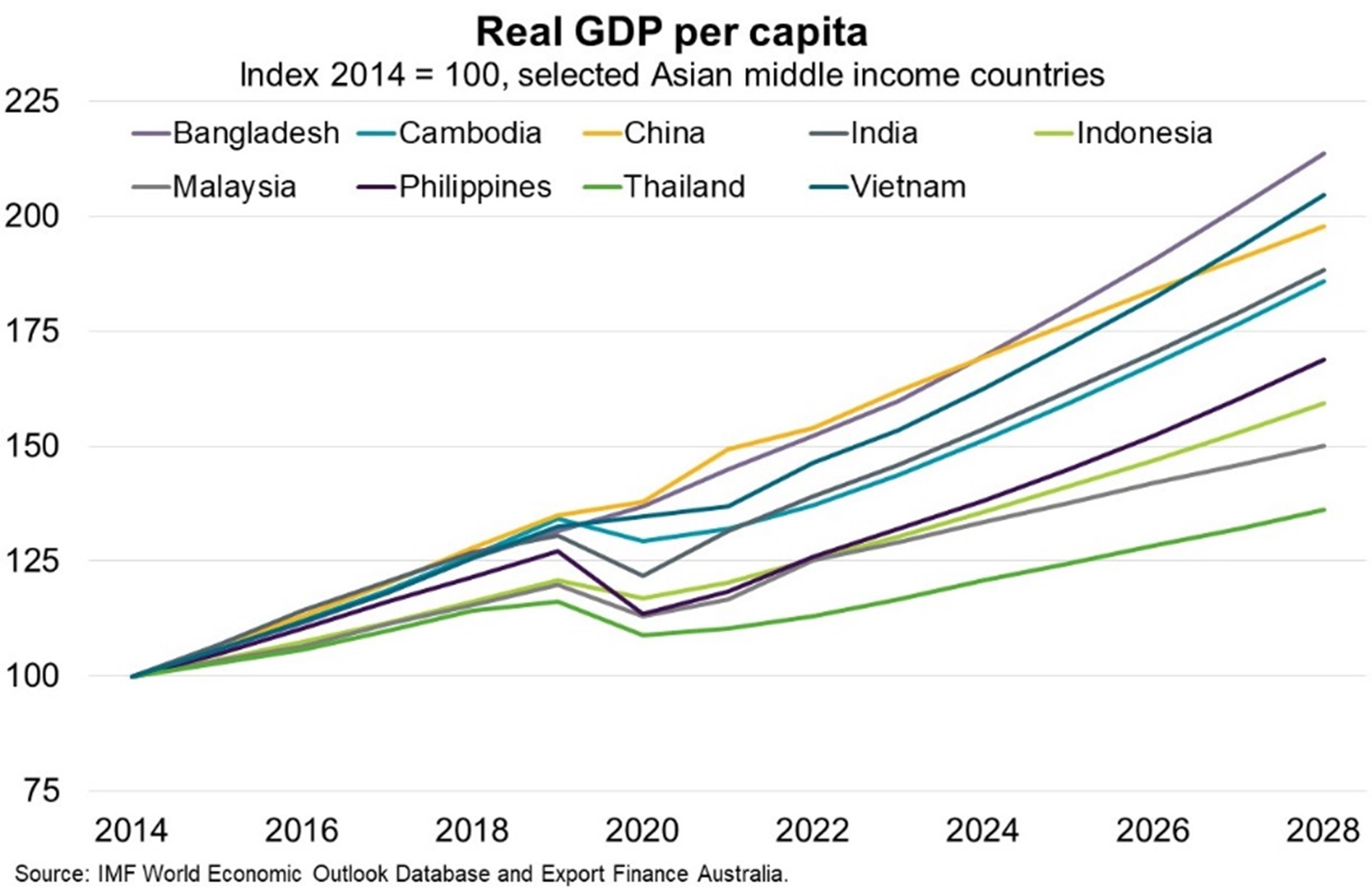Thailand—Election win for pro-democracy opposition fuels uncertainty
Preliminary results suggest two pro-democracy opposition parties—Move Forward (MF) and Pheu Thai (PT)—won 152 and 141 seats respectively in the 500-member lower house. By contrast, the two main parties backing Prime Minister Prayut Chan-o-cha, who led the 2014 coup d'état, collectively won just 76 seats. The election results highlight the depth of the popular desire for change. MF’s election pledges proposed major amendments to Thailand’s political order—dismantling business oligopolies and reforming the military including abolishing conscription. The result also reflects dissatisfaction with Thailand’s economic performance—including lagging GDP growth (Chart) and FDI inflows.
Despite the strong victory of pro-democracy parties, the outlook is uncertain. MF’s leader Pita Limjaroenrat is supported by a coalition comprising eight parties with 313 seats—enough for a governing majority. But securing the prime minister role requires the support of at least 376 lawmakers from the lower house and 250-member, military-appointed Senate. Members of the Election Commission, the Anti-Corruption Commission and the Constitutional Court are also appointed by the military. A rival pro-military MP has already made allegations that Pita owned prohibited shares in a media company. Pita denies wrongdoing but could be disqualified if the case proceeds and he is found guilty. Indeed, the leader of MF’s predecessor party (Future Forward) was banned from politics after the party won the third-largest number of seats in 2019 elections. Future Forward was subsequently dissolved by the Constitutional Court.
Political unrest could eventuate if state institutions prevent pro-democracy parties forming government or Pita taking leadership. MF has strong support among young voters that led anti-government protests in 2020. Meanwhile, a government formed by minority pro-military parties in the lower house would face difficulty passing legislation. This would raise governability challenges in Southeast Asia’s second largest economy and Australia’s 13th largest export market.

